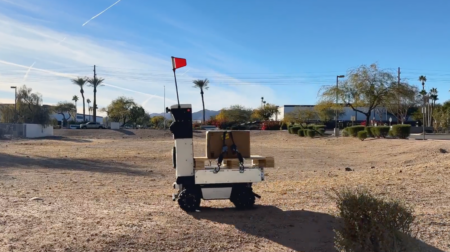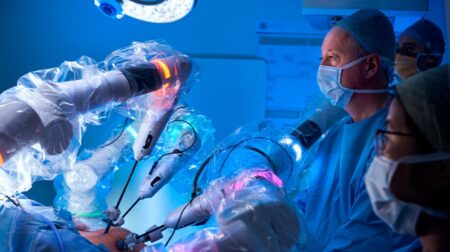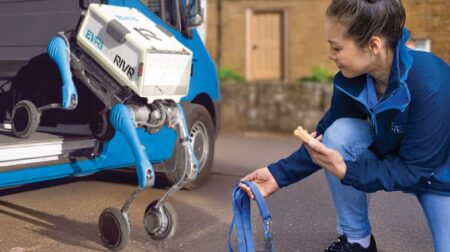Sweden’s Karolinska University Hospital has added ABB´s collaborative robot (cobot) to its laboratory team to take over manual sampling tasks, with the aim of creating a better working environment and increased efficiency.
With its own dedicated innovation centre, Karolinska University Hospital in Sweden has been looking for ways to realise the possibilities of automation to help provide improved levels of performance throughout its operations.
“Our search for ways to use robotic automation to help improve the way we do things started a few years ago when we looked at the automation journey that other industries have made, and we thought about what we in healthcare could learn from them,” said Annika Thoresson, innovation manager at “Innovationsplatsen”, the centre for innovation at Karolinska University Hospital.
“We also understood that in the automation industry there is an interest in learning more about how healthcare works and what needs we have here.”
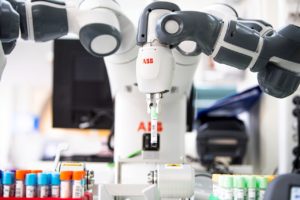
One area where automation has been deployed is the university’s laboratory. Millions of medical samples are handled here every year, and although fixed sorting automation helps to handle the large volumes, there was a need for improvements around the manual steps, many of which involve repetitive tasks.
Lena Nyman, section manager at the pre-analytical unit at Karolinska University Laboratory, added: “Many of the tasks that have to be performed in our laboratory are both monotonous and repetitive in nature.
“Manually handling the samples and performing the same movements for hours on end was putting stress on the wrists and shoulders of our laboratory operatives. We have for many years tried to find a good solution to help alleviate this problem.”
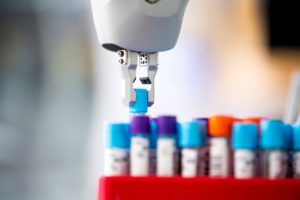
ABB’s cobot is used to scan test tubes and open transport sleeves. As well as releasing the laboratory operatives to perform other roles, collaborative robots’ involvement has also helped to put an end to aches and pains caused by having to carry out these repetitive tasks.
“When we got the collaborative robot up and running, we noticed very quickly that the work environment was very positively affected and that we saved the strain on our wrists,” said Nyman. “In addition, time was freed up so that we could change our flows and have greater efficiency in the business.”
Karolinska University Hospital is continuing to explore the possibilities of deploying robots to handle additional tasks, both in a laboratory environment and in more healthcare-related applications.

